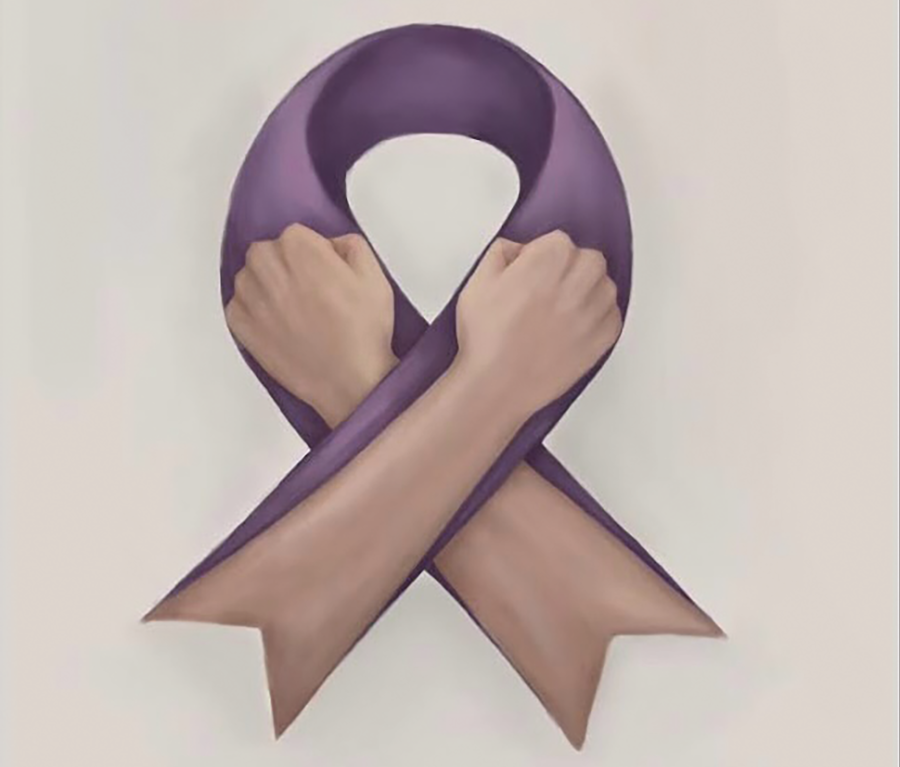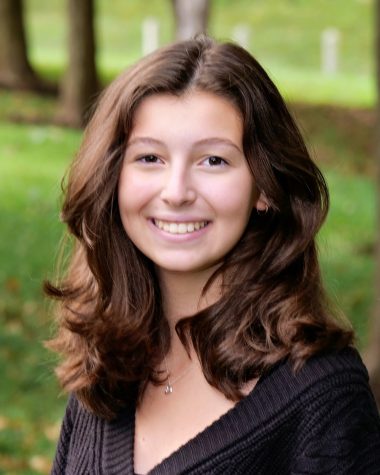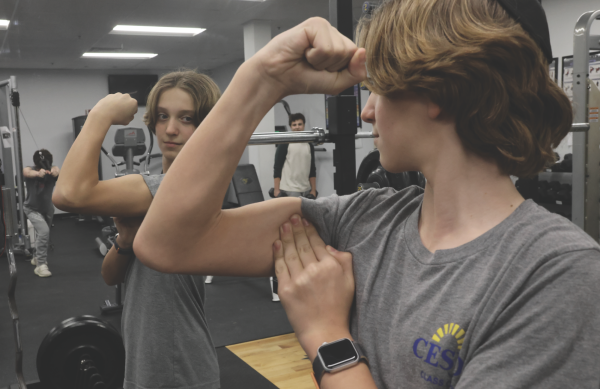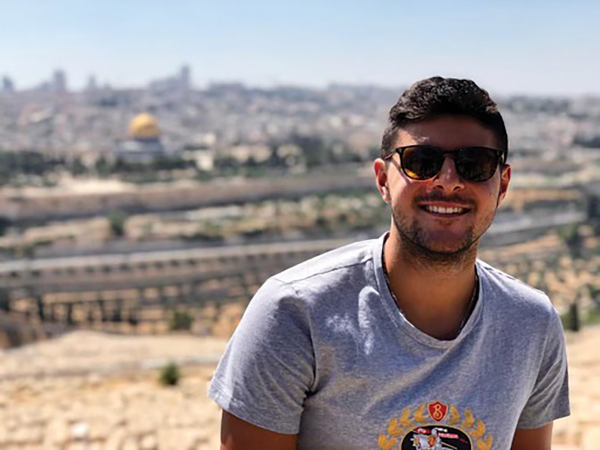Tougher together
Families battling cancer are offered a wide variety of help from medical professionals to religious support.
Grappling with the experience of cancer in a family is difficult for even adults to grasp. For an elementary-aged Jonah Boles, the experience of his brother’s cancer diagnosis was even more terrifying. For the rest of his life, his childhood memories will not be filled with trips to the toy store but rather with the sound of MRI machines and the sterile walls of hospital bedrooms.
When Boles was four years old, his older brother Jaimin Kammerman, then 11, was diagnosed with Medulloblastoma, a cancerous brain tumor found primarily in children. While Boles’ younger-self recognized his parents’ fear when they received the diagnosis, it was not until years later that he realized the true detrimental effect of this experience.
Although his brother’s illness was rough on the whole family, he remembers that the sense of stability that his parents exuded was critical to making it through the experience.
“They weren’t sad,” Jonah said. “They were always determined. They understood what was going on and what they had to do to help him. It was kind of in a way encouraging. Whenever I saw them, they were calm about it and them being calm and doing the right thing instead of panicking is one of the main reasons my brother is alive today.”
Joyce Kammerman, the mother of senior Tory Boles, Jonah and Jaimin and also a CESJDS substitute teacher, was in disbelief when she heard her son’s diagnosis for the first time.
“Most parents that I’ve spoken with, their first response is, ‘it has to be a mistake. Are you sure? There has to be a mistake.’ And then you go through the process of disbelief and grief,” Joyce said. “Then you start to realize you have got to get your act together in order to figure out what you have to do. I don’t think you ever get to the point of acceptance.”
Joyce understands that not only Jaimin’s life was impacted by the life-changing diagnosis, but her other children’s lives were turned upside down as well. The early lives of Tory and Jonah were filled with memories of hospital waiting rooms and dinners with family members missing from the table.
As the child undergoing the experience, Jaimin’s life has forever been impacted. However, at the moment, having cancer was incredibly difficult to grasp.
“I kind of blocked it all out,” Jaimin said. “You know, I was 11, and I was being told ‘you have a 50/50 chance of living.’ It sounds kind of morbid, but it was true.”
Although he is in remission, Jaimin said that cancer still impacts his life today – and is never something to truly leave behind.
“It’s not totally over, it’s never over,” Jaimin said. “I still have to take meds. They are not chemo, but I still have to take meds. My whole body is kind of messed up … if I don’t take this certain medication once a day, something bad will happen.”
While the cancer still affects him physically, Jaimin has taken the help from the organization Hope for Henry to get involved and help others mentally.
Jaimin said that when he was in the most difficult part of his journey at Children’s National Hospital, Hope for Henry provided entertainment in the form of art classes, birthday parties and clowns for emotional support. Jaimin and his mom have taken the opportunity to give back to the organization that made such an impact on Jaimin’s life.
“As a parent who has been through this, I personally feel an obligation to give back and it makes me happy to be able to help other people,” Joyce said.
Medical Support
While patients are undergoing treatment, proper medical support is vital for both their physical and mental health.
Hospitals such as MedSTARWashington Hospital Center have pharmacists, social workers, therapists, gastroenterologists, chemotherapists and oncologists that work together to ensure that each cancer patient gets the appropriate physical and emotional support.
Physical care for cancer patients primarily includes chemotherapy treatment. This form of treatment administers medication into the patient’s veins to kill their cancer cells. Radiation is another type of treatment which blasts high energy waves into tumor cells to kill them.
According to the American Cancer Society, all cancer treatments have side effects which vary in duration and severity depending on the patient. Many side effects of chemotherapy are temporary but side effects such as heart, lung, kidney and reproductive organ damage can last for many years.
“Anytime someone has a change to their life, especially a serious illness, it changes our relationship with ourselves, our bodies, our world, our future, our relationships, and that comes with a lot of repercussions,” attending physician at Medstar Washington Hospital Center Department of Palliative Care, Michal Pottash said.
Additionally, radiation treatment can cause early side effects of fatigue and nausea; radiation sometimes causes permanent heart and lung problems starting a year after the treatment.
According to Deborah Topol, a Washington Hospital Center attending physician in the department of internal medicine, both radiation and chemotherapy can kill normal cells in addition to cancer cells if they aren’t properly monitored.
Along with providing their patients with advanced physical treatment, Washington Hospital Center values emotional support. Each cancer patient can rely on therapists and attending physicians to constantly be by their side.
Potash described hospitals as an “ecosystem” of people communicating with one another in addition to fulfilling their individual roles to help cancer patients.
“Our job is to care for all the ways in which a serious illness can affect someone’s life,” Pottash said.
Aside from patient psychological support, attending physicians have an immense contribution to their emotional well-being, including Pottash. He sees patients in the hospital clinic when they are experiencing challenges along their journey, including some who have reached the end of their lives.
“For the most part, it’s a lot about listening and hearing what people are saying, where they are,” Potash said. “Only then will you know how to help.”
Pottash explained that he gives support by staying present and checking in with the patient to understand what they are ready to hear. He believes it is extremely important to remain communicative with both the patient and their family.
“In caring for a person, it also means caring for the people that care about them,” Pottash said.
“You want to preserve the quality of life for a patient if they survive their cancer. It takes a whole team,” Topol said.
Outside Help
Along with professional medical help, thousands of support groups and organizations work to comfort those affected by cancer.
Hope Connections is a local cancer support group based in Bethesda. This organization holds many support groups for people with all different types of cancer, aiming to provide patients with the opportunity to relate to each other and support each other while grappling with this illness.“Oftentimes family and friends want to be supportive and try to be supportive, but they cheerlead a lot and it’s hard for them to hear when things are difficult or what is difficult,” Program Director Stephanie Stern said. “In the support group, nobody has to worry that they are going to upset someone if they share openly and honestly how they are doing.”
Stern feels that working with Hope Connections is an extremely rewarding experience. She feels that in addition to helping others, working with a support group can help patients look inwards and make new discoveries about themselves during the process of overcoming cancer.
“I think that the human spirit is so strong and we are all stronger than we think we are,” Stern said. “When we are faced with something as difficult as cancer, we find our inner strength to get through even though we could not imagine that we could do this.”
In the Jewish community, rabbis are another form of support. In general, many Jewsturn to rabbis to seek spiritual guidance when they feel lost or do not know how to handle a certain situation. For cancer patients, rabbis focus on their spiritual healing through prayer and counseling, a role their doctors cannot fulfill. These meetings are often private and happen when patients are first diagnosed.
“It’s [helping families with cancer] something that people never see. It’s quiet, it’s personal, it is impactful and it’s heartfelt. I think that it is the most important thing that I get to do,” Greg Harris, Senior Rabbi at Congregation Beth El, said.
Harris said the most important part of his job is reminding people that they are not defined by their diagnosis; they are always made B’tzelem Elohim – in the image of God.
“Most people that have cancer don’t become cancer. They are full people just like they were before the diagnosis,” Harris said. “Treating them as people with an illness and not transforming them into the illness is important.”
Prayer is another aspect of a rabbi’s job. Harris said that along with speaking with patients, he often prays with them. Patients often turn to prayer as a source for catharsis and hope, even if they do not pray in their everyday lives
“When you have cancer, you learn a lot about yourself, your community and your relationships,” Harris said. “There is a realignment of priorities, and sometimes people find a renewed sense of Judaism and spirituality.”
There are no direct medical benefits to visiting a rabbi for healing because its purpose is for spiritual healing. However, according to the Natural Library of Health, spiritual and physical healing are directly related. The extent of that connection has not yet been determined, although it is hypothesized that finding a sense of spirituality betters your mental health, which consequently betters your physical health.
“In the mi sheberach we say Refuat Hanefesh, Refuat Haguf [healing of the body and healing of the soul]. It is the doctor’s job to repair the guf (body), and it is the Rabbi’s job to repair the nefesh (soul),” Harris said.
Professional medical help is extremely important, but there are other ways to support a person going through cancer. Joyce works with the organization Hope for Henry to bring a sense of normalcy to child cancer patients in the hospital, who miss out on the staples of childhood such as birthday parties.She feels as though it is important for kids not to miss out on “normal things” a child would do.
“I saw that it was the best experience that we had in all the hospitals we were in and the thing that actually brought joy to our lives,” Joyce said.
Families Facing Outwards
After enduring such a traumatic experience with Jaimin’s cancer journey, the Kammerman-Boles family learned many life lessons, and they felt especially motivated to give back to the community.
From Tory’s experience of having a sibling living with cancer, they have kept core values to keep with them throughout their life. They wish to share these values with others who have family members with cancer.
“Just keep an open mind and take care of each other, watch out for each other. It gets better. Support each other as much as you can,” Tory said.
Jonah agrees with his sister and appreciates that his family gave back to the community what had supported them through their brother’s journey with cancer. The Kammerman-Boles family often works with Hope for Henry, an organization that brings encouragement to children in hospitals through finding them life specialists, in an effort to give back to the community that helped them.
“Now whenever anybody needs help, my mom’s the first person to say, ‘hey I have been there and done that. Let me do to you what others did for me.’ Really just giving back to the community, and the organizations, and the people that helped them,” Jonah said.
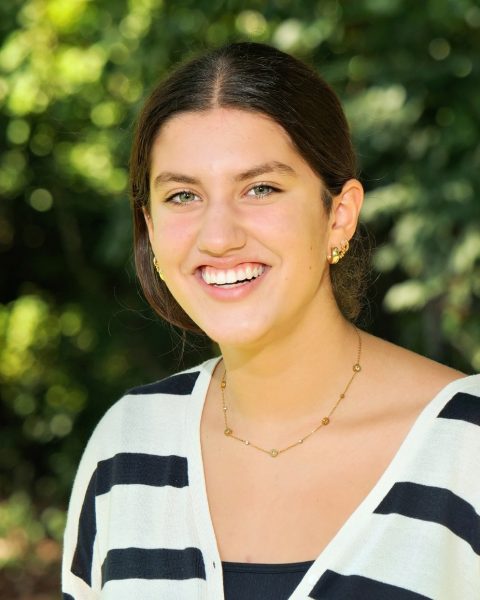
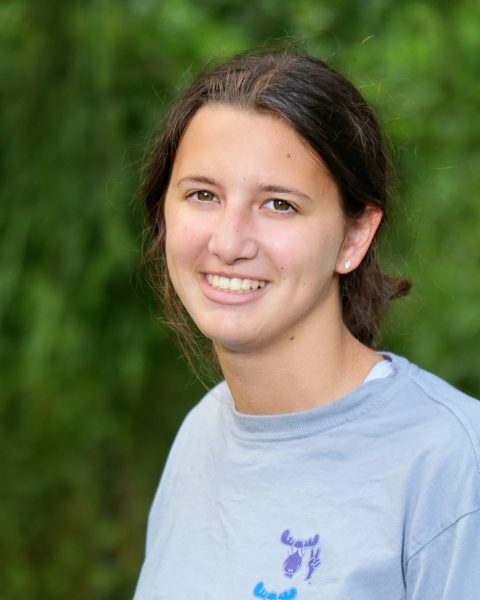
| Gigi is excited to continue her time on The Lion’s Tale as In-Depth Editor. She is committed to sharing new and exciting articles and information with the community. Outside of Lion’s Tale, Gigi is the president of Green Team, a three-varsity sports athlete, founder of the NCJW club, and editor-in-chief of the Bohr Franklin Science Journal. She cannot wait for another great year on staff and to see everything the paper will achieve. |



